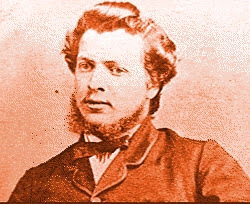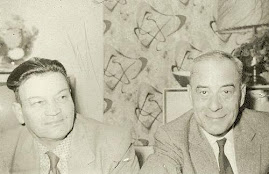I felt that it was important to identify the significance of the United Nations work in relation to United Nations Declaration on the Rights of Indigenous Peoples. We received a post in relation to minimizing this issue to the Indigenous people of Canada. In my view – that is marginalizing a global issue and looking at a beach and only addressing the issues of one grain of sand.
Canada’s objection to the declaration is specifically around Article 3 – which reads:
Article 3: Indigenous peoples have the right to self-determination. By virtue of that right they freely determine their political status and freely pursue their economic, social and cultural development.
The three countries with the largest Aboriginal populations – Canada, United States and Australia are not willing to let Indigeneous people determine their own political status or allow them to pursue their economic, social and cultural development.
In many countries Human rights defined as the supposed "basic right and freedoms in which all humans are entitled." Examples of rights and freedoms which are often thought of as human rights include civil and political rights, such as the right to life and liberty, freedom of expression, and equality before the law; and social, cultural and economic rights, including the right to participate in culture, the right to food, the right to work, and the right to education. (As defined by the Wikepedia Free Encyclopedia)
These are the minimum standards that the world, on a global scale has promoted for all human beings. In Canada, the Charter of Rights and Freedoms was adopted in 1982.
(http://www.pch.gc.ca/progs/pdp-hrp/canada/freedom_e.cfm )
This is not the case in many countries in the world. There are many examples all over the world where Indigenous people still live under threat of things like sexual abuse, intimidation, kidnapping, forced confinement, forced sterilization, torture and death. The United Nations working together to identify a means of identifying a standard to treat people fairly should not be taken lightly.
In 1948 the United Nations responded to many of the barbaric acts that were a part of World War II and passed a resolution for the Declaration of Human Rights. It urges the members of the United Nations to promote human, civil, economic and social rights as a foundation for freedom, justice and peace throughout the world. The members of the United Nations, which Canada is one has a responsibility to live up to this declaration. The United Nations identified as part of the preamble to 1948 declaration “...recognition of the inherent dignity and of the equal and inalienable rights of all members of the human family is the foundation of freedom, justice and peace in the world.” Canada and the United States were very instrumental in moving this declaration forward.
The Human Rights Declaration includes the basic principles of dignity, liberty, equality and brotherhood. It deals with the rights of individuals and the rights of individuals in relation to others as well as, the spiritual, public, civil, political, economic, social and cultural rights of people. This declaration was adopted unanimously by all the member countries involved at that time with three countries abstaining on the vote.
This 1948 declaration identifies the people’s rights to self-determination and sovereignty over their natural resources. The now Declaration for Indigenous Rights clearly reaffirms these rights for Indigenous people from around the world.
In the Canadian Charter of Rights and Freedoms the following section clearly identifies the issues related to some of the collective, historical rights of Aboriginal people.
“ABORIGINAL RIGHTS AND FREEDOMS NOT AFFECTED BY CHARTER.
25. The guarantee in this Charter of certain rights and freedoms shall not be construed so as to abrogate or derogate from any aboriginal, treaty or other rights or freedoms that pertain to the aboriginal people of Canada including
(a) any rights or freedoms that have been recognized by the Royal Proclamation of October 7, 1763; and
(b) any rights or freedoms that now exist by way of land claims agreements or may be so acquired. “
The entire Declaration on the Rights of Indigenous people
http://www.un.org/esa/socdev/unpfii
The Canadian government needs to respect the democracy of the House of Commons - because a majority vote in the House of Commons identified the Canadian support of the declaration and historically the principles of this country were made up from the belief that all human beings have rights collectively and individually that should be valued.
Sunday, April 20, 2008
United Nations Declaration on Human Rights
Posted by
MetisMama
at
7:18 PM
![]()
![]()
Subscribe to:
Post Comments (Atom)





No comments:
Post a Comment